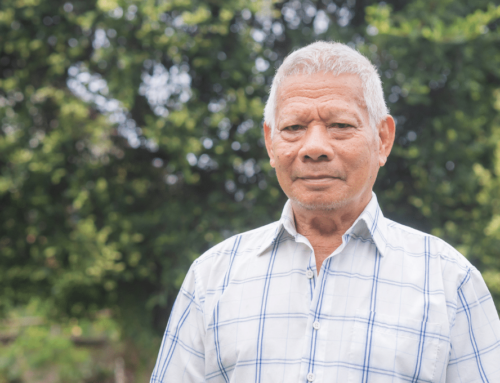Everyone deserves a place to call home ‑ to live a healthy life and enjoy a future. Research shows that without a permanent, stable home, it’s nearly impossible for individuals struggling with mental health challenges to move toward wellness and recovery. Inadequate housing can lead not just to homelessness, but also lengthy hospitalizations, frequent visits to psychiatric screening centers and ERs, and involvement in the criminal justice system.
Housing provides individuals with the support needed to reach the highest possible level of independence and become contributing participants in their community. However, finding a safe and affordable place to live remains a challenge. In 2022, over 500,000 people were experiencing homelessness in the United States.
Homelessness is deeply connected with mental health. According to Psychology Today, an estimated 20 to 25 percent of the U.S. homelessness population suffers from severe mental illnesses, compared to six percent of the general public. Homelessness can be caused by unemployment, unaddressed health issues, eviction, the high cost of living, and a lack of affordable housing. Many experiencing homelessness have high rates of chronic and co-occurring health conditions and substance use disorders.
We understand the critical need to provide housing that is not only safe, permanent and affordable but also accessible to community resources and transportation. Oaks Integrated Care offers supportive housing, transitional emergency housing, and group homes throughout New Jersey. In addition, our PATH (Projects for Assistance in Transitioning from Homelessness) program in Camden and Mercer Counties places adults with a serious mental illness who are homeless or at risk of homelessness in appropriate housing and provides linkage to mental health treatment.
Janice’s Story
Janice, a 42-year-old woman experiencing a serious mental illness and homelessness, was referred to Oaks for outreach and case management services. After a volatile relationship with her mother and difficulties with transitional housing, she ended up in a shelter with nowhere else to turn. Janice’s immediate response was a lack of interest and reluctance to accept help, insisting on a return to her family. Our team collaborated with multiple partners to provide wraparound services, including the Board of Social Services, the County, and area soup kitchen.
Over a 3-year period, we continued to walk beside Janice to help her reach treatment goals and ultimately obtain housing. This illustrates that with patience, compassion, teamwork and an individualized approach we can address homelessness in our community.
If you or someone you love is struggling, consider speaking with a professional. To learn more about residential services or schedule an appointment, call our Access Center at 1-800-963-3377.









